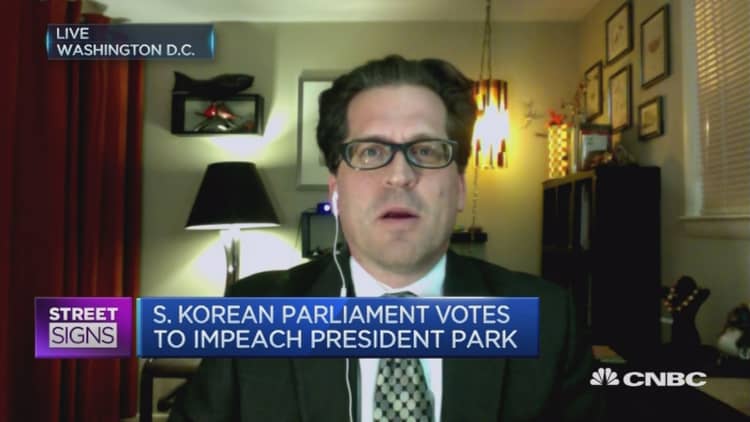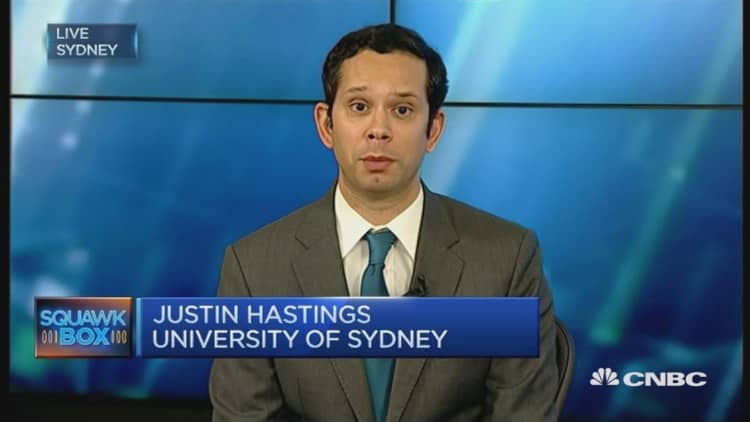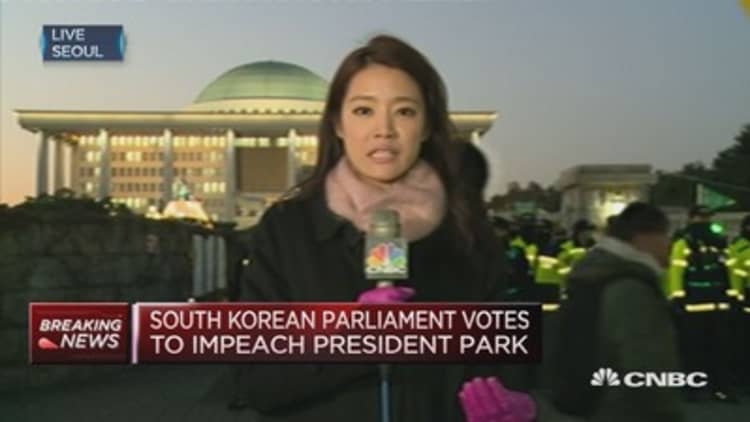An anti-establishment wave that aided Brexit, fueled the rise of U.S. president-elect Donald Trump and sparked the resignation of Italian Prime Minister Matteo Renzi has now spread to South Korea, where voters are warming up to a politician who likens himself to Bernie Sanders.
Anger towards embattled President Park Geun-hye, who is facing impeachment amid alleged involvement in an influence-peddling scandal, has inspired a pronounced wave of political disillusionment. As reflected by recent protests, voters were not only angered by Park's actions, they revealed broader frustration with the nation's history of political corruption, crony capitalism and nepotism—issues that resurfaced in Park's case.
Park's conservative Saenuri party has been in power since 2007, and the rising national dissatisfaction with the status-quo, combined with the fact that opposition now controls parliament, could bolster leftist politician Lee Jae-myung, one of the top three contenders in the 2017 presidential election race.
Originally scheduled for December 2017, the election may be held earlier if the Constitutional Court decides to force 64-year old Park out of office, as overwhelmingly demanded by the public.
Lee, mayor of a city near Seoul called Seongnam, has advocated policies to reduce the income gap between rich and poor as well as plans to break up chaebols, the family-run conglomerates that dominate South Korea's economy and are frequently embroiled in bribery and corruption cases. Hailing from the liberal Minjoo Party, Lee said in a recent Facebook post that he wanted to be called a successful Bernie Sanders.
The 52 year-old was ranked third with 18 percent support in a Gallup Korea poll of presidential hopefuls released Friday. Tied for first place were Moon Jae-in, former head of the Minjoo party, and U.N. Secretary-General Ban Ki-moon, who is expected to represent Saenuri, with 20 percent each. But out of the three, only Lee has officially declared his bid.
"Lee was one of the biggest critics of Park very early on and that has served him well in the minds of the public. We've been looking at people like Moon Jae-in and Ban Ki-moon as the front-runners but Lee has really come out of nowhere," noted Scott Seaman, Eurasia's senior Asia analyst. "It's shaping up to be a very interesting race."
Others also echoed how Lee has benefited from the anti-Park sentiment.
"Lee's growing popularity is partly the result of dissatisfaction with Park in particular, as well as the fact that the leftist opposition hasn't really coalesced around a single candidate yet," said Justin Hastings, senior lecturer at the University of Sydney.
National sentiment aside, strong credentials also underpin Lee's candidacy, according to observers.



"He has reduced the debt of Seongnam to zero and rejected political favors. He seems to be very tough on corruption and he has shown his capability in the eyes of public. I think he will do a good job as President," said Daniel Yoo, head of global strategy at Kiwoom Securities.
Interestingly, another potential participant in the 2017 race has also been dubbed as a Korean Bernie Sanders. Ahn Cheol-soo, who ran in the 2012 election as an independent candidate, has earned comparisons with the Vermont senator for his recommended reforms in the education, welfare and chaebol sector. Ahn, a former software tycoon, co-founded the opposition People's Party early this year but resigned in June for the party's alleged involvement in a kickback scandal.
While Ahn was not implicated, the incident has weighed on his popularity; he ranked fourth place in the Gallup Korea poll, with just 8 percent support.
Between Ahn and Lee however, strategists say the latter has a better shot at victory. But it's not clear if Lee can take on fellow Minjoo member Moon Jae-in, a progressive candidate who lost to Park in the 2012 race.
"The anti-establishment sentiment may be strong enough to sweep Lee into office, but he has major headwinds to overcome first," Hastings warned, noting that Lee would need to beat Moon Jae-in in the Minjoo primary before becoming a candidate.
Traditionally, leftist support in South Korea tends to be concentrated in the southwest so Lee will need to attract support from elsewhere in the country, he added.
One thing is certain however, Park's scandal has massively increased the chances of a president from one of the opposition parties. While Saenuri is widely expected to undergo severe rebranding and restructuring to distance itself from Park, that may not be enough to convince the public.
"There's no popular leader on the right... I would be shocked if the left didn't walk away [from the election] victorious. This will be similar to the U.S. Democrats winning after Watergate," Robert Kelly, associate professor at Pusan National University, told CNBC's "Capital Connection" on Monday.
"I would be surprised if Ban Ki-moon can overcome the disdain for Saenuri."

